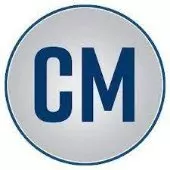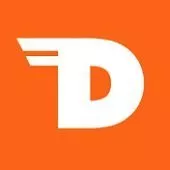-
Welcome to Auto Parts Forum
Whether you are a veteran automotive parts guru or just someone looking for some quick auto parts advice, register today and start a new topic in our forum. Registration is free and you can even sign up with social network platforms such as Facebook, X, and LinkedIn.
Saying ‘Thanks’ To Your Customers
-
Similar Topics
-
By APF
When selecting parts for a car repair, it pays to know the differences between original and aftermarket parts. Whenever possible, get estimates for both.
Choosing between original and aftermarket car parts — and even used parts of either type — is all about squaring your priorities with your budget.
You’ll have different options depending on the part and the shop. And the best choice will depend on whether you’re trying to keep repairs cheap, restore your car’s appearance after a wreck or soup up your ride.
» SIGN UP: link hidden, please login to view
Before we get into that, here are the key differences:
Original equipment manufacturer (OEM) parts match those that came with your car, and are of the same quality as its original parts. They’re also the most expensive. Aftermarket parts are cheaper, and made by other manufacturers — often several, giving you more options. Used parts may have a bit of wear and tear, but should be inspected or rebuilt to ensure they’ll work. These are the cheapest option. Choosing between aftermarket and OEM parts
Your decision will depend on the type of repair and the quality and price of the parts. Always look for parts that come with a warranty, even if they’re OEM, so you’ll be protected in case they fail.
Auto body repairs
Some aftermarket parts may be OK for
link hidden, please login to view, but others won’t be as good, says Michael Calkins, manager of technical services at AAA. “There’s a lot of variation in quality.” For example, he says, aftermarket parts often don’t have the same level of rustproofing as original parts, fit and finish don’t match, or panels don’t align properly. If OEM parts are used in auto body repair, the car should look and work exactly as it did before the damage, because everything will match up. OEM parts are also crash-tested, unlike many aftermarket parts.
Aftermarket parts come at varying price points and levels of quality, but because they are cheaper, insurance companies often prefer them. If you want OEM parts but are dealing with an insurer that wants the shop to use aftermarket parts, ask to pay the difference.
“There’s also the option of used parts, depending on the age of the vehicle,” Calkins says. “It may be cheaper than an aftermarket part but still have all of the original quality.”
Mechanical repairs
A used part, whether it’s OEM or aftermarket, can really save money on repairs under the hood, so long as it’s inspected first and warrantied. And some aftermarket companies reverse-engineer their products to be even better than OEM versions.
For example, many car buffs will tell you that you can get heavy-duty shocks and struts or brake pads that are made of stronger materials. Scan some reviews online, or talk with your mechanic if you’re not sure whether an aftermarket part could be an upgrade.
Adding some extras
If you’d like to modify your ride by adding something like a backup camera or back-seat TV screen, you’ll probably be looking for aftermarket parts. Certain aftermarket upgrades could increase
link hidden, please login to view. This is especially true for improvements like a better sound system or alloy wheels, rather than mechanical repairs. Who provides OEM or aftermarket parts?
The options you’ll have for parts depends on the nature of the repairs and what type of shop you take your car to:
Dealership repair shops will offer only OEM parts — they have no reason to offer a cheaper product from a competitor link hidden, please login to view may be able to offer you a choice between OEM and aftermarket parts Independent garages that specialize in your type of vehicle will likely have both, but with quicker access to OEM parts, including used OEM parts, which can really save you Auto body shops can offer both, but if your collision repair is part of an insurance claim, the insurer will likely prefer aftermarket parts to save money Depending on the job, the cost of OEM versus aftermarket parts varies. Whenever you’re given the choice, ask to see estimates for both so you can weigh your options.
Source:
link hidden, please login to view -
By Clifford Auto Parts
When it comes to maintaining your vehicle, every car owner faces one big question: "How do I find reliable auto parts without breaking the bank?" Whether you're dealing with a check engine light, a sluggish transmission, or just looking to upgrade your car’s performance, knowing where to start can make all the difference.
At Clifford Auto Parts, we’ve worked with thousands of car enthusiasts and everyday drivers across the U.S. to provide premium-quality Engine Control Modules (ECMs), Powertrain Control Modules (PCMs), and other essential components. Here’s what we’ve learned about keeping your car in peak condition—and how the right parts can save you time, money, and stress.
The Lifespan of Your Vehicle Depends on the Right Parts
Let’s face it: Not all auto parts are created equal. Cheap, low-quality parts might save you a few dollars upfront, but they often lead to costly repairs and frustration down the road. Here’s why investing in the right components matters:
Improved Performance: High-quality parts ensure your engine, transmission, and other systems run smoothly. Increased Safety: Faulty parts can lead to dangerous situations on the road. Reliable components minimize the risk of breakdowns. Long-Term Savings: Durable, well-made parts reduce the need for frequent replacements, saving you money in the long run. Signs You Need a Replacement Part
Not sure if it’s time to replace a component in your car? Here are some red flags to watch for:
Check Engine Light: This is often linked to issues with the ECM, PCM, or other key systems. Erratic Shifting: A sign that your Transmission Control Module (TCM) might need attention. Poor Fuel Efficiency: If your gas mileage drops, your car’s engine control systems could be the culprit. Unusual Noises: Clicking, grinding, or knocking sounds can signal worn-out parts that need immediate replacement. Why Choose Clifford Auto Parts?
Finding reliable auto parts doesn’t have to be a hassle. At Clifford Auto Parts, we’ve built our reputation on quality, transparency, and exceptional customer service. Here’s why thousands of drivers trust us:
OEM-Quality Parts: All our products meet or exceed OEM standards, ensuring a perfect fit and reliable performance. Fast, Free Shipping Across the U.S.: Get the parts you need delivered to your doorstep quickly—no extra costs. Lifetime Warranty: Every part we sell comes with a lifetime warranty, so you can buy with confidence. Expert Support: Not sure which part you need? Our knowledgeable team is here to help. Top-Selling Auto Parts at Clifford Auto Parts
🚗 Engine Control Modules (ECMs): Optimize your car’s engine performance and fuel efficiency.
🔧 Powertrain Control Modules (PCMs): Improve power delivery and keep your vehicle running smoothly.
🚙 Transmission Control Modules (TCMs): Say goodbye to erratic shifts and hello to seamless driving.
Our parts are available for top brands like Chevrolet, Ford, Dodge, GMC, and Chrysler.
Pro Tips for Car Owners
Here’s how to keep your vehicle running at its best:
Don’t Ignore Warning Signs: The longer you wait, the more damage a faulty part can cause. Buy from Reputable Suppliers: Ensure your parts come from trusted sources like Clifford Auto Parts. Maintain Regular Service: Even the best parts need proper care—schedule routine maintenance with your mechanic. Join the Conversation
We know the car community loves to share tips, tricks, and personal experiences. Drop a comment below and let us know: What’s the one upgrade or repair that made the biggest difference for your car?
Need help finding the right part? Check out our webiste for high-quality, affordable components.
-





Recommended Posts
Create an account or sign in to comment
You need to be a member in order to leave a comment
Create an account
Sign up for a new account in our community. It's easy!
Register a new accountSign in
Already have an account? Sign in here.
Sign In Now